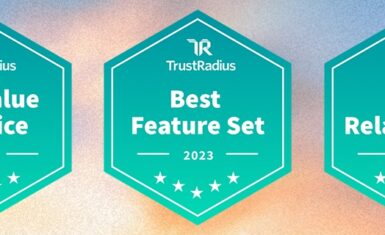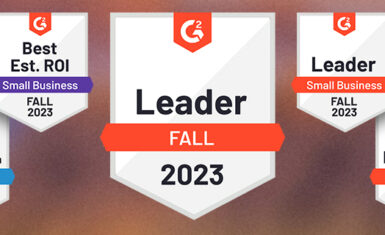Not just altruism, but good business
If your company doesn’t actively embrace neurodiversity, lack of inclusivity is only part of the problem. You’re also leaving an enormous amount of talent on the table.
Trivia time!
Fewer than 2% percent of the population has red hair.
A surprising 8% of people are born with an extra rib.
Left-handedness is more common, at around 10%.
Guess what’s twice as common as being left-handed?
Being neurodivergent. Neurodivergence means you perceive and interact with the world differently and may have one or more diagnoses such as ADHD, Autism, Dyslexia, or Dyspraxia.
Twenty percent. One in five people. That’s a lot of people. And up to this point, the neurodivergent community has been largely invisible within the contemporary workforce.
That’s partly because unemployment rates for neurodivergent people run as high as 80%, according to the Harvard Business Review. It’s also because neurodivergence is deeply stigmatized, and neurodivergent people who are employed often feel like they have to “mask” at work, meaning actively hide their neurodivergence in order to appear as neurotypical.
It’s exhausting. And I’m speaking from experience. I’m proudly neurodivergent, and I’ve experienced what happens when you’re in a work environment that’s not welcoming to neurodivergence.
What happens when you work for a company that embraces neurodiversity
That’s why I’m so proud to work for Alludo, where being neurodivergent is not only okay, but is actively embraced. I’ve been so fortunate to receive enthusiastic encouragement as I become an increasingly vocal neurodiversity advocate.
As a company, we thrive on the diversity of thought, background, experience, identity, and neural processes that our team members bring to the table. As a company, we recognize the immense potential and unique perspectives that can only come when people think differently.
One of the things I’m most proud of about Alludo’s stance on neurodiversity is that it’s not a PR stunt or fodder for bragging rights or something that gets posted about but never acted upon. Because let’s be clear: diversity is not just a word. It’s an action. And that action has to take place every day.
Taking action at Alludo
Including different voices in the conversation is a start, but that’s not enough.
When it comes to any form of diversity, bringing voices to the table must include ensuring that these voices are heard and respected.
At Alludo, we’ve implemented practices to better include our neurodivergent employees. We created an Employee Resource Group focused on allyship, which amplifies these voices while creating a safe space and a fantastic forum to discuss how the company can support our neurodivergent team members.
We’ve also become a leader in promoting freedom at work, empowering employees to work where, when, and how they do their best work. We encourage people to bring their whole selves to work, without the need to mask, so they can do their jobs to the best of their unique abilities.
What happens when you embrace neurodiversity in the workplace?
I’m thrilled that our action on neurodiversity has transformed the culture of our workplace. For one thing, we’ve become sought after by incredible talent specifically because of our stance on neurodiversity and our commitment to promoting freedom at work.
And that’s just the start. As a company, we’re people-first but data-driven. And it’s absolutely in our best interest to ensure that people can truly shine in their roles, without the limitations imposed by traditional workplace structures. It’s also in our best interest to attract and retain people who will keep us out of ruts by approaching problems differently and coming up with unique, innovative solutions. That requires diversity of thought. Groupthink is poisonous for innovation. Neurodiversity is the antidote.
What companies can do to embrace neurodiversity
I’m thrilled that Alludo has emerged as a leader in embracing neurodiversity within the workplace, but we’re well aware that we still have work to do. This is an evolving, ongoing process, and we’re committed to it.
Since we’re already on this journey, we want to share what we’ve learned. For companies looking to embrace neurodiversity, awareness is a great place to start. There’s a major lack of understanding surrounding neurodiversity, and that lack is why the stigma is so stubbornly ingrained. This stigma creates barriers that span from the hiring process to the daily work environment, performance evaluations, and promotions. It’s critical for leaders to understand that neurodivergence doesn’t mean reduced neuro-ability; rather, it means different neuro-ability. And that can difference is frequently a major advantage.
In addition to fostering awareness of neurodiversity, here are five best practices to make a workplace more inclusive:
- Focus on outcomes, not inputs.
- Implement Employee Resource Groups for neurodivergent employees and their allies.
- Include neurodiversity at every stage: recruiting, interviewing, and onboarding.
- Understand that supporting neurodivergent individuals doesn’t mean lowering standards; it’s about fostering their best performance.
- Reduce stigma through open communication about your commitment to embrace neurodiversity. Identify and support internal advocates.
Again, enhancing inclusion isn’t just about altruism. And it’s definitely not a PR stunt. It’s a competitive advantage. We’re going to keep learning, advocating, and sharing insights as we continue the journey toward a more inclusive and innovative work environment. We’re walking the walk, and we’d love for you to walk with us.






